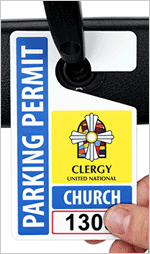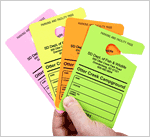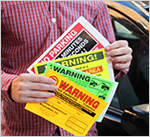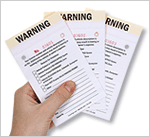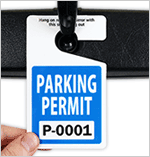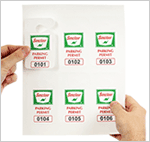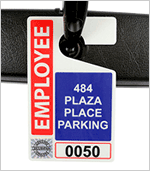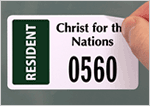Special license plates for NY judges A-OK?
In New York, judges can pay $31.25 extra for license plates that display “SMA,” the acronym for the State Magistrates Association—and there’s nothing wrong with that, wrote the state’s Commission on Judicial Conduct in a 14-page report last week. Already one third of roughly 1,200 city and state judges, as well as 1,832 members of the SMA, have tags that identify them as current or past members of the judiciary.
The commission began studying the ethical implications of the special plates almost a year ago, when it called for the removal of Diane Schilling, a part-time judge in upstate New York. Schilling had been found guilty of fixing tickets she and the wife of another judge had received from inexperienced police officers unaware of the significance of the SMA plates each driver had.

New York State’s judges’ perquisites are at the center of a controversy. Despite blistering criticism, a commission thinks it’s fine to keep giving judges special plates, possibly biasing cops against pulling them over. From steakpinball.
The incident suggested that judges with special plates might receive preferential treatment from law enforcers. Indeed, the commission at the time hinted that judicial license plates regularly caused police to ignore parking and traffic violations by judges, resulting in a de facto perk for jurists.
The report officially recognized the abuse: “Over the years in the course of investigating other complaints of ticket-fixing, the Commission has been advised by law enforcement officers in various parts of the state that at times they have declined to issue tickets to motorists whom they stopped for speeding, once they realized by virtue of license plates that the drivers were judges.” In some instances, said one commission member, judges who were discovered intoxicated in their cars or stopped for drunken driving were escorted home by officers instead of being arrested.
More than 200 court officers, law enforcement officials, and various judicial, bar, and civic organizations were invited to comment during the commission’s review, but the response was anemic, with only 18 comments logged.
By the investigation’s end, the 10-member commission, which includes four judges (two of whom have the special plates), concluded that the tags “do not create an appearance of impropriety.” The opinion, which echoed findings released last September by the Advisory Committee on Judicial Ethics, also suggested that the Office of Court Administration, which advises judges on ethics, include mention of the controversy around the plates in its training programs for judges.
Long-time attorney and commission member Richard Emery, who authored a blistering 11-page dissent to the report, called the commission’s investigation “an exercise in evasion.”
“Though judges are unequivocally prohibited from using their judicial status to obtain special treatment for themselves, their families or friends, they are legislatively authorized to flaunt their judicial status on their personal vehicles,” he continued.

NY state’s judicial license plates are immediately recognizable, leading to accusations that judges receive different treatment from the rest of us. From nydailynews.com.
But supporters of the plates say that the special tags boost judges’ safety in those instances when they must conduct afterhours or off-site arraignments. The tags also double as parking passes in courthouse lots, allow judges to display pride in their work, and, because they cost more than regular plates, generate the state $35,000 in revenue annually.
Detractors argue just the opposite: by announcing the driver’s profession, the plates make judges more vulnerable. Judges could easily use parking decals or placards at government lots, too, instead of the special tags. Finally, how much is the state losing in revenue from traffic violations that may otherwise be issued to judges but which are waived due to police officers’ reluctance to stop cars with SMA-bearing plates?

There are plenty of other solutions that maintain judges’ lawful parking privileges without putting cops in the middle of a conflict of interest. From myparkingpermit.
Currently, only 10 other states and the District of Columbia offer judicial license plates for the personal vehicles of its sitting judges.
In a statement to the press, Darcy Wells, a spokesperson for the New York state police, reiterated that the agency makes no special ticketing dispensation for any members of the public. “It makes no difference if it’s a judge, doctor, EMT or reporter, our members will still enforce the law appropriately,” she said.
Related Posts
Category: Enforcement, State

